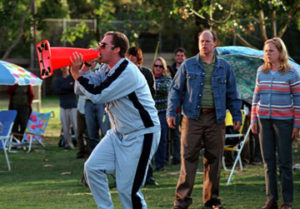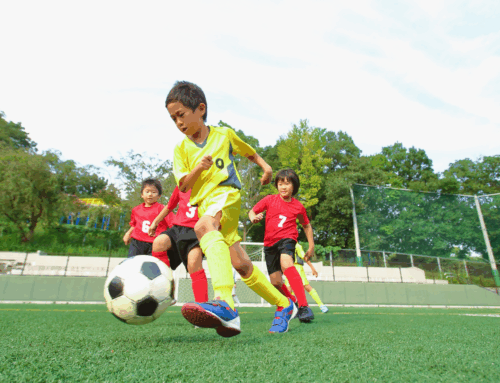Get our exclusive report. Download the iSport360 Club Switching Report Here – For Club Admins, Rec Leaders and Coaches.
You’re Not Alone: All Sports Parents Feel This Way
 By: Emily Galvin, CMPC, Summit Performance Consulting, LLC
By: Emily Galvin, CMPC, Summit Performance Consulting, LLC
As a sport parent, I’m sure you can relate to feeling the highs of watching your child excel, and the lows of watching those games where nothing goes right. All parents seem to experience some stress from time to time watching their children play. If this sounds like you, you’re not alone.
Here are a few common stressors nearly all sports parents experience:
My son is so hard on himself. No matter what, he only focuses on his mistakes – even if the team won!
Very competitive athletes who have high expectations can be their biggest critics. This often leads to a lack of objectivity when evaluating performance. They lose sight of focusing on the positives and often, lose an opportunity to learn and grow.
Try these tips:
– Encourage your son to do a “Good, Better, How” reflection after games. Tell him to think about or write down what was good about the game, what he can do better next time, and how he’ll do better.
– Explain to him that high expectations are helpful because they provide motivation and focus. The key is to keep them bring helpful by letting go of mistakes and failures after games and refocusing on a plan to try to reach those expectations next time.
– After each game, if you offer comments, model objectivity and stay focused on the process.
I don’t want to be “that parent” who always questions the coach, but…
All parents feel this way at some point. Often, if comes from lack of communication between parent and coach.
Try these tips:
– Depending on the issue, you could first talk to your child. Ask what information coach gave her about switching her position, for example. Ask how that conversation went and what she thinks of it. (You might learn a lot, or you might learn that your daughter is in the dark, too.)
– Schedule a time to talk with the coach. Email him/her in a nonconfrontational way. Keep it brief and be polite. You and the coach are on the same team.
– When you speak with the coach, you’re there to voice your concern, but most importantly, to listen and learn about his/her process and decisions.
– If you have a real problem, engage in a composed discussion about it. You certainly have a right to your opinion and you want to protect your child, but remember, coach calls the shots. (If you truly disagree with a coach’s decisions and fundamental coaching style, it might be time to consider switching teams.)
– Often, these meetings give parents a better understanding of the reasoning behind coach decisions, which alleviates a lot of frustration or stress.
I know this means a lot to him, but after a bad game, my son lashes out at me and I don’t know what to do about it.
Unfortunately, this is not uncommon. After games, emotions run high and athletes often use parents as an outlet. This can lead to a lot of tense car rides! Try these tips:
– Much later in the evening when emotions are low, calmly speak to your child. Say, “I want to have a conversation about what happened after your game.”
– Tell him you understand that emotions are part of sports and have a conversation about what he was feeling, and why.
– Normalize the emotions (perhaps even commending his competitive spirit!), but make it clear that the resultant behavior is not acceptable. Talk through other options for how to respond to those intense emotions.
– Talk about focusing on the process of the game and being objective when evaluating his play (what did he do well, what needs work?).
– Be clear with the consequences he’ll have if he continues to be disrespectful.
Sometimes I can’t even watch when my daughter is on the free throw line; I’m just too nervous.
If I had a nickel for every time I sat in the stands and saw parents cover their eyes…! No matter how nervous or excited you get as a spectator, remember that your child is keenly aware of what you do and say in the stands. Demonstrate confidence in your child! Try these tips:
– Keep things in perspective. As invested as you might feel, your role is to be her support system.
– Take a deep breath and remind yourself to focus on the process. Try to pay attention to what she’s doing and pick out something she’s doing well that you can talk to her about after the game.
– This can take away some of the weight of the result. In other words, it’s not only about if she makes the free throw, but about her process leading up to it and how she handles herself after.
– If you need to, use a little self-talk! Tell yourself, “she’s done this before, she can do it again. No matter what, I’m her biggest supporter.” She’ll notice you’re watching!
Being a sport parent can be extremely rewarding and very tough. Just know that you are not alone in all the highs and lows you experience in this role. Try to use these tips to make your job a little easier, and your experiences in the stands – or in the car driving home! – a little more enjoyable.
Click here to try iSport360, a mobile platform for coaches and parents to share objective feedback on their players.
Learn more or request a demo of our youth sports software that is helping teams improve communication, organization and player development.
November 15, 2017





